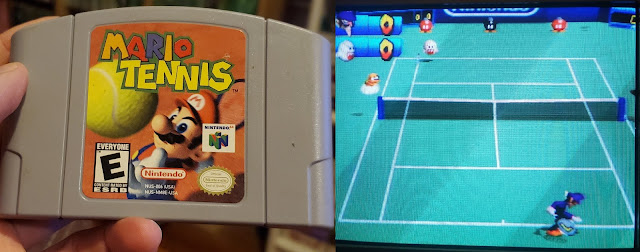Collection essentials #372: PaRappa the Rapper (PS1)
I previously talked about Dance Dance Revolution, the first rhythm game that I’ve covered in this series. Well, DDR might be the most successful and iconic game in the genre, but it wasn’t the first. It’s somewhat debatable what should or shouldn’t precisely be considered a rhythm game, but PaRappa the Rapper is often considered to be the first one that truly set the template for the genre as we know it today, releasing in 1996 in Japan and in the rest of the world the following year.
The most immediately-striking thing about PaRappa the Rapper is its artstyle. The game is fully in 3D, but the characters are all portrayed as paper thin, as if someone had drawn them and cut them out with scissors only then to find that they had come to life. The game’s unique look no doubt helped it stand out and attract attention when it was first released. Although the game was developed in Japan, the artist tasked with creating PaRappa’s look, Rodney Alan Greenblat, lives (last time I checked) in the State of New York not too far from me, across one state border. I saw him in 2019 at a convention in the city of Albany, and he owned a small art shop in the town of Catskill which unfortunately closed in 2020.
PaRappa is not the type of rhythm game where you simply select songs from a menu. Instead, the game follows a story which leads up to the level portions, situations where PaRappa must rap. He’s a young dog who has a crush on a girl who is literally a walking flower, and he must compete with a rival suitor, an arrogant jerk named Joe Chin. PaRappa’s very quotable signature phrase is, “I gotta believe!” He starts out the game trying to better himself to win over his crush, which includes learning karate and getting a driver’s license. As you might expect, the game gets kinda silly and you’ll find situations such as PaRappa needing to use the bathroom really badly and having to rap to earn a better spot in line.
Gameplay plays out sort of like a game of “Simon Says”, where a character indicates the buttons that PaRappa has to use to rap, and then it’s PaRappa’s turn to reproduce what they just did. One thing that’s a bit unique is that the game incentivizes the player to “freestyle” a bit by adding notes in between the ones that are required.
Now, unfortunately…PaRappa seems more difficult to play than it should be. The timing for when you’re supposed to press the buttons is VERY strict, and the game does not inform the player whether their inputs are too early or too late, and it can be difficult to tell when the buttons are actually supposed to be pressed. This can be made even worse if the setup you’re using introduces a small amount of input lag, something that isn't a big problem for most games but can be significant when timing has to be this strict. There’s also just not a whole lot of content in this game, with story mode being pretty short, and there are no multiplayer modes present. Despite its short length, I’ve never come close to beating this game up to this point in my life due to the high difficulty.
PaRappa the Rapper was a big success in Japan, and saw modest sales numbers elsewhere. While it was never one of the top PlayStation games in America, it was nonetheless well-known due to it being so unique, memorable and easy to quote. I didn’t own it growing up and didn’t know anyone who did, but I still knew what it was since it stood out so much. I think I briefly owned a Japanese copy (which had English voices) which came in a bundle that I got when I was 16, and got rid of it thinking that I’d get the American release at some point instead, which I did many years later. I kind of wish I had hung on to that, but oh well.
While I wouldn’t consider PaRappa one of the best rhythm games out there, it is nonetheless very amusing, memorable, charming and iconic. It’s one I feel deserves to be represented in my collection. PaRappa earned being an essential, ‘cuz he told himself, “I gotta believe!”




Comments
Post a Comment